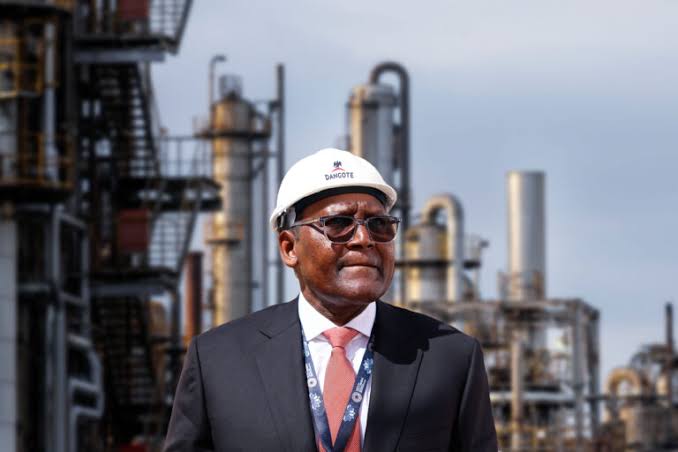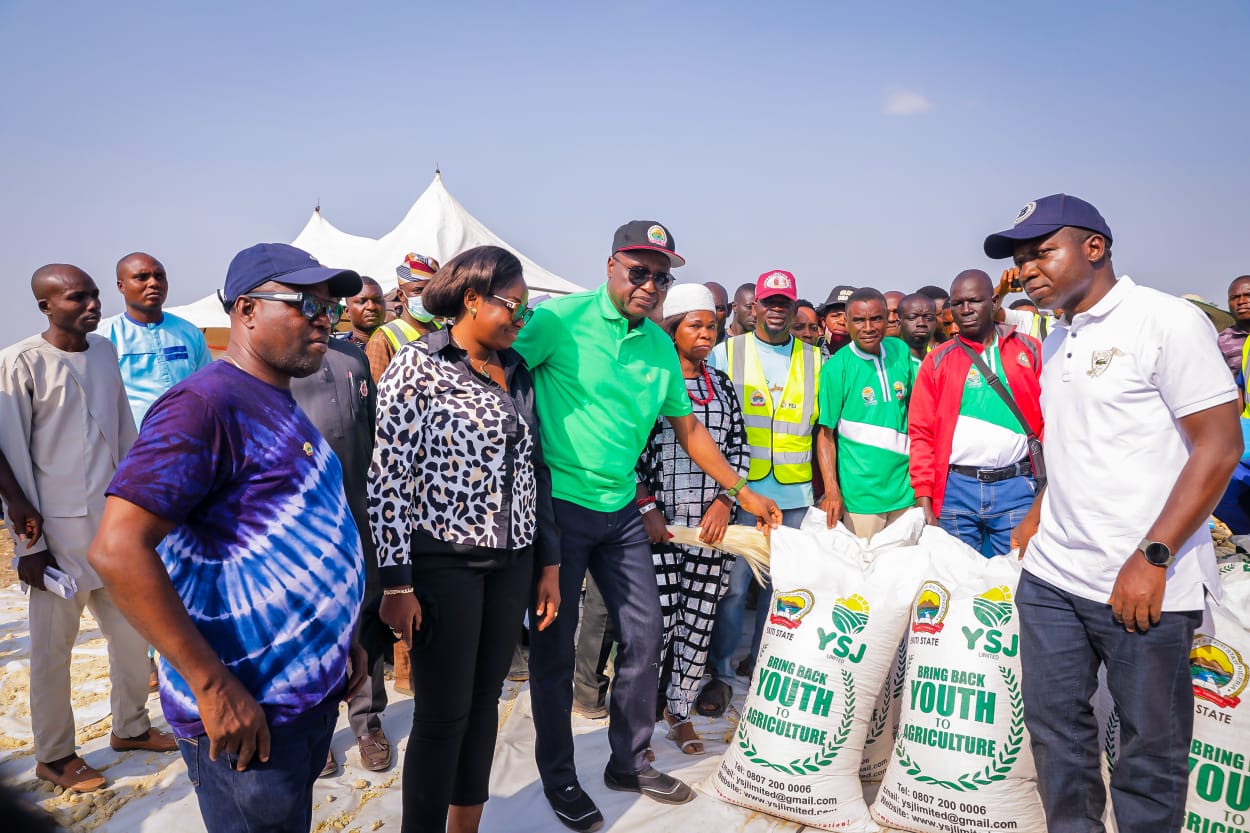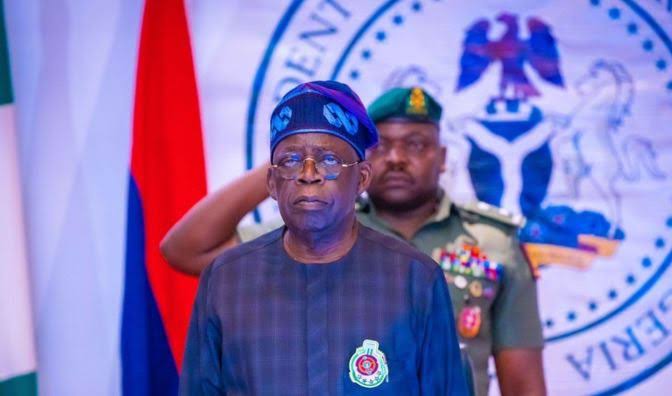Nigeria's Oil Politics And The Other Side Of Dangote Conglomerate By Maxwell Adeyemi Adeleye

In 2024, the most anticipated Dangote refinery in Nigeria began operation. And since then, it has been a tug of war between Dangote, NNPCL, and Oil Marketers. From the Naira-for-Crude, to oil capacity, to AGO ban, to Fuel price counter, the list of hindrances seems endless. As a man wired to back anyone who feel oppressed, I backed Aliko Dangote and his interest against the NNPC and the colonial importers of oil into Nigeria through several media advocacies.
Alas, the anticipated refinery, hoped to lessen the economic burden the inflated oil price placed on Nigerians seems to be a shattered dream. It begs the question, what went wrong? Why is Dangote fighting everybody in the business?
Dangote’s business practice spans over different sectors which he has dominated for over three decades. His conglomerate, Dangote Group, spans multiple sectors, including cement, sugar, salt, flour, and now, the new venture, oil production. His monopolistic practices in the cement and confectionery sector for decades is glaring, and it is appalling to watch as Dangote intends to monopolize the oil sector, the major determinant of Nigeria’s economy while playing the victim to unsuspecting Nigerians. I felt stupid when it turned out that Dangote wasn't sincere as per the cost of refining fuel locally compared to the cost of importing fuel after instigating Nigerians against the government. Hence, I am compelled to beam a search light on the Dangote conglomerates.
Let’s start from the beginning. Dangote Cement, a subsidiary of Dangote Groups began operation in 1992. Three decades later, it remains the dominant player in the Nigerian cement industry, controlling a significant portion of the market. While this may seem like Dangote’s competitiveness gives it an edge over others, I beg to differ. Dangote’s monopoly is extensively backed by the government. As an alleged major political sponsor in both federal and state level, the favoritism the businessman gets isn’t surprising. Unlike other conglomerates, Dangote benefited from many waivers, giving him an edge over his competitors.
Over the years, competitors like BUA Group and Lafarge have struggled to maintain a foothold in the market, largely due to the expansive reach of Dangote’s cement empire. As of 2021, Dangote Cement accounted for over 60% of the cement produced in Nigeria. By leveraging economies of scale, Dangote has been able to keep prices relatively high, reducing opportunities for smaller players to compete. The lack of meaningful competition has led to inflated cement prices, affecting the country at large.
Also, Dangote Sugar Refinery is the largest sugar producer in Nigeria, controlling roughly 70% of the market. Similarly, in the salt industry, Dangote Salt, under NASCON Allied Industries, commands a sizable portion of the market. The control of these basic goods by one entity raises concerns about price manipulation and availability, particularly during periods of economic downturns. Competitors who attempted to challenge Dangote’s supremacy in these sectors have often been pushed out or forced to scale down operations. For example, in the sugar and cement industry, BUA Group faced stiff competition from Dangote and has accused him of using undue influence to gain market advantages.
Is Dangote’s business acumen so supreme that he has been able to force nearly all competitors out of business in over three decades? Government and political backings have played a huge impact in influencing his monopoly over businesses in Nigeria. When the government merges with a businessman to stifle the growth of other enterprises, how can they ever grow? This question is posed to you and I.
While painting the current government as the sole perpetrator of stifling his new enterprise - the Dangote refinery, it seems Dangote has forgotten how business works without enjoying favors from the government. One of the most glaring examples is the tax waivers and concessions Dangote has reportedly received from the Nigerian government. Instead of paying taxes like other businesses, Dangote has negotiated deals that allow him to invest in infrastructure projects, such as the construction of roads, in exchange for tax breaks. A prime example is the Oshodi-Apapa Expressway, a major road that connects Nigeria’s major ports to other parts of the country. Dangote was granted the contract to rehabilitate the road in exchange for tax concessions, raising the question: what is the true value of the tax he would have paid compared to the cost of constructing the road? Reported estimates suggest that the cost of the Oshodi-Apapa road rehabilitation pales in comparison to the amount of tax revenue Nigeria could have collected from Dangote’s businesses if no concessions were granted. The use of government-backed projects to offset tax obligations is one of the ways Dangote has managed to maintain a competitive edge over other businesses in Nigeria.
A report by Cheta Nwanze published by Premium Times as of 2021 quotes the demand by Dangote Group’s Chief Strategy Officer, Aliyu Suleiman requesting that importation rights for petrol be awarded only to licensed and active refineries in Nigeria. This was even before the completion of the refinery. It should make one question the intention of Dangote for Nigerians. It’s like feeding a monkey banana while keeping it caged; unable to source for better opportunities. Dangote’s intention in monopolizing the oil sector at large is a call to hold Nigerians at ransom. As much as I support Dangote Refinery’s success due to the external forces from our colonial masters' effort to stifle the growth, i refuse to support Dangote’s superficial empathy and effort to pitch seemingly innocent people into believing the government is hell bent on pushing him out of the oil business.
Dangote’s expectation of the government to bend over existing rules and favorable conditions to ensure it dominates the oil market makes me cringe. In a X space organized by Nairametrics, a Dangote official complained that over 95% of oil marketers are not buying from the group. Why should marketers be forced to purchase from Dangote when there are offers well suited for business growth? Favoritism for Dangote is glaring in actions taken by Nigerian Midstream Downstream Petroleum Regulatory Authority (NMDPRA), the agency meant for regulating Midstream and Downstream operation favoring the conglomerate over marketers despite airing their concerns against the cost and sulphur content of Dangote’s fuel. President Tinubu’s demands for choosing marketers over the duo would have been a shock to Dangote who has enjoyed favoritism over others. This did not go down well with Dangote and this showed when NMDPRA suddenly gave notice to marketers to stop all AGO imports on June 1, 2024, and directed them to source AGO locally and DR, which marketers resisted!
The current government seems to be challenging Dangote’s dominance, particularly in the oil sector. The Nigerian National Petroleum Corporation (NNPC), which runs its own business ventures, is resisting Dangote’s attempts to monopolize fuel distribution in Nigeria. The NNPC, being a government-owned entity, has a vested interest in ensuring that multiple players can operate in the oil sector, promoting competition and keeping prices low for consumers.
And then there is Dangote clamoring for support while pointing accusing fingers at NNPCL for not spoon-feeding him the entire Nigeria crude, forgetting that like him, NNPCL is a business enterprise– profit making is essential. Nigerians' hope was dashed when locally sourced oil cost more than imported fuel. The supposed savior seems to want Nigerians on a chokehold. NNPCL reported that fuel was purchased from Dangote refinery at #898 per litre while imported fuel cost #858 per litre. Yes, Dangote countered this report, stating the cost price was lower than NNPCL stipulated while intentionally keeping the price hidden from the public. Personally, this reeks of shadiness and lack of transparency, a bad business acumen. The price disparity is enough to raise questions about Dangote’s intention for Nigerians. The refinery was supposed to make things easier, not harden an already hard economy. If Dangote’s refinery becomes the primary source of fuel in Nigeria, consumers will end up paying more at the pump, while other smaller refiners struggle to compete because fuel price will be his call.
I need Nigerians to note that problems will arise if fuel marketers are pressured to lift fuel from Dangote’s refinery, leaving little room for smaller refineries to survive. I can ascertain that my fear is legitimate, much like his dominance in the cement and sugar industries, Dangote will monopolize the oil sector, shutting out other players. In a market where oil is the lifeblood of the economy, having one player dominate fuel production and distribution will have severe consequences for competition and pricing.
While Dangote’s businesses have contributed to Nigeria’s GDP, his monopolistic tendencies have had negative consequences on the broader economy. Small and medium-sized enterprises (SMEs), which are important for job creation and economic diversification, struggle to compete in markets dominated by Dangote. Nigeria’s unemployment rate remains high, with millions of young people unable to find jobs. It is imperative to note that with a population of over 250 million, Dangote Group is inefficient in boosting Nigerians economy and growth. How many people can he employ? How many scholarships has he given to return back to society? It is near impossible for over 250 million people to rely on one business to alleviate economic hardship. The country needs a diverse range of healthy businesses competitions to stimulate growth, create jobs, and reduce its dependency on imports. While Dangote’s refinery is an added achievement to the nation, it should not come at the expense of other refineries and smaller players in the oil sector. We need competitions. We need the government to ensure that policies are in place to promote competition and prevent monopolies from taking hold.
As Nigeria seeks to diversify its economy and reduce unemployment, it is important to kill any monopolistic tendency that is rearing its head, and a level playing field is created for all businesses. It is heart-wrenching enough that Nigerians have to rely on Dangote’s refinery despite having four other refineries. Although, nonfunctional– all thanks to major players. Encouraging monopoly in the oil sector equates putting the whole Nigerians in the palms of Dangote, him as the puppeteer, us as puppets. Oil sector is our survival, therefore competitions are welcomed, embraced, and MUST be encouraged at all costs.
Maxwell Adeyemi Adeleye is a United Kingdom based Strategic Communications Expert and Real Estate Broker.



